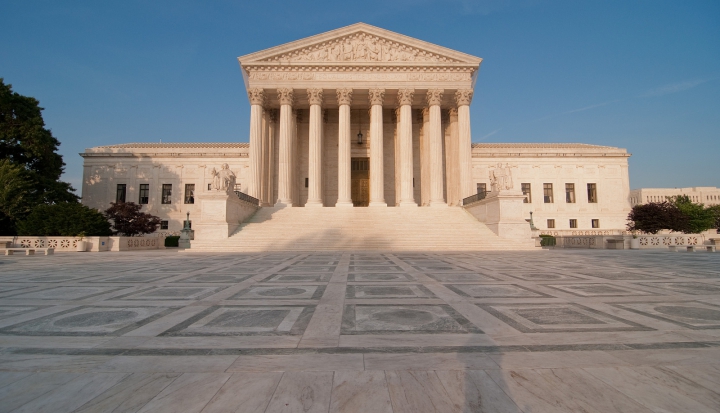Move over religious liberty—while we await the Supreme Court’s much anticipated decision in the Hobby Lobby challenge to the Affordable Care Act, the court’s attention is focused on another First Amendment issue: free speech.
There has been a wave of free speech cases hitting the court this term, some of which have major implications. Earlier this month the court announced its controversial and heavily debated decision in McCutcheon v. FEC, using the free speech argument to lift limits on individuals’ campaign contributions. On Monday, the court heard arguments in Lane v. Franks, which calls into question First Amendment protections for the speech of public employees who testify against their employer.
One of the more interesting cases is Susan B. Anthony List v. Driehaus, which the court heard last week. The case centers on an Ohio law that prohibits making false political statements about a candidate during an election. The SBA List, a pro-life political action group, accused Rep. Steve Driehaus of “voting for taxpayer-funded abortion,” which meant he had voted for the Affordable Care Act. Driehaus, who considers himself a pro-life Democrat, argues that the accusation is not true—he did vote for the ACA, but only after President Barack Obama agreed to sign an executive order prohibiting the use of federal funds to cover abortion. So who was telling the truth?
Driehaus successfully blocked the SBA List from running its planned billboards under the Ohio law, but he still lost the election. The Supreme Court’s main question in this case now will be whether the SBA List has the standing to challenge the law in court, since they were never actually prosecuted under the law. But the justices clearly seemed skeptical of the law itself during oral arguments.
The whole case raises some interesting questions about who exactly are the arbiters of truth. This is a touchy area, especially when one person’s truth is based on their religious belief: Could one call a candidate who favors legal access to abortion “pro-murder,” for instance? Catholics who believe that life begins at conception might call that a true statement, but others would disagree. How would a state decide who was telling the truth? Even within the Catholic Church, we can’t always agree on what constitutes a true statement (just look at the criticism Pope Francis got over the truth of a three-word tweet he sent out this week).
Free speech rights are, as the court has ruled in the past, certainly not unlimited. Determining when and where to place limits on speech has proven a challenging enough job for the government—do we really want them to be in charge of determining whether someone’s speech is “truth” as well?
Image: Flickr cc by Mark Fischer










